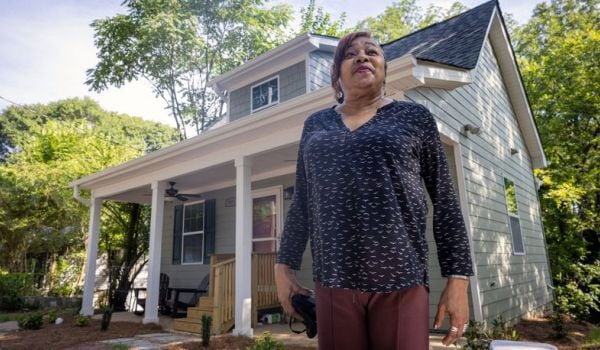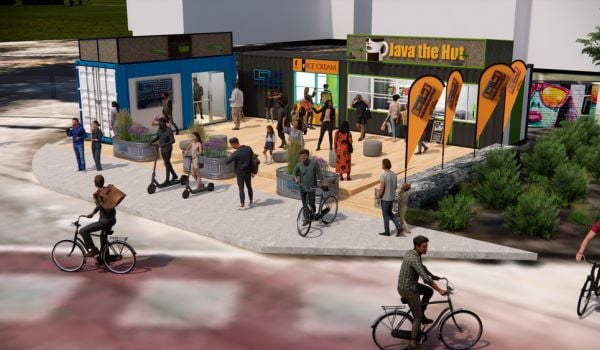American cities are doing better than they have been for a long time. In many places, inner city household incomes are increasing more rapidly than those of suburban or exurban households. After decades of declining population, new Census data reveal that Washington, D.C. is growing for the first time since 1950.
But those trends largely reflect changes within America’s dense older metropolitan areas along the coasts. What about reorganizations in relative population between cities and regions? The release of the first Census 2010 datasets show significant changes in the general composition of the American population, demonstrating that it is increasing moving south and west, away from the Midwest and Northeast. States that will gain congressional representation after the next election are Texas, Florida, Arizona, Georgia, Nevada, South Carolina, Utah, and Washington; those that will have fewer seats at the federal level beginning in 2013 are Iowa, Illinois, Louisiana, Massachusetts, Michigan, Missouri, New Jersey, New York, Ohio, and Pennsylvania.
Florida is now almost as populous as New York State. The Empire State was more than five times bigger in 1950.
In sum, this means less representation at the federal level for states that have traditionally been the biggest supporters of policies aimed towards central cities and more representation for places better known for their exurbs. Does this mean a difficult period ahead for urbanites, at least when it comes to funding from Washington?
Not necessarily. For one, in many of the states that are growing quickly, cities are also doing well: Houston, Las Vegas, and Phoenix — among others — are all quickly densifying in their downtown cores. Between 2000 and 2009, for example, the City of Atlanta grew by 125,000 individuals: That’s a 30% increase. And urban areas in the South and West need good public transportation and affordable housing subsidies just as much as do those in the Northeast and Midwest.
Those discussing urban issues both in the media and political spheres must ensure that their dialogue recognizes the fact that urbanism in the United States means a lot more than New York and Chicago. This magazine has done its part: In our current issue, we feature Dallas, Oklahoma City, and Salt Lake City.
But in order to secure long-term policies that benefit cities across the country, the discussion clearly must be broadened: The refusal of the governors of Ohio and Wisconsin to accept federal high-speed rail dollars is illustrative of a failure to understand why such a project could benefit those states’ cities. The new members of the House Transportation and Infrastructure Committee in the now Republican-led House of Representatives has a surprisingly rural and suburban bent, indicating little support for urban needs.
The truth is that though cities in the South and West are becoming more vibrant, the majority of the population of those states lives in suburban or exurban communities. They vote for their own needs, not on behalf of urban interests.
To pursue an effective agenda, advocates need to make a stronger argument for the importance of maintaining public service provision and funding for city-level needs. Some of that will come naturally, as center cities in those states attain an increasing prominence in the local discourse. But more importantly, the fact that cities are effective job creators and efficient economy-growers should become a commonly known fact. People in the Northeast and Midwest may already understand it, but we have a long way to go before this truth is accepted in many other parts of the country.

Yonah Freemark is a senior research associate in the Metropolitan Housing and Communities Policy Center at the Urban Institute, where he is the research director of the Land Use Lab at Urban. His research focuses on the intersection of land use, affordable housing, transportation, and governance.









_(1)_600_350_80_s_c1.JPG)






